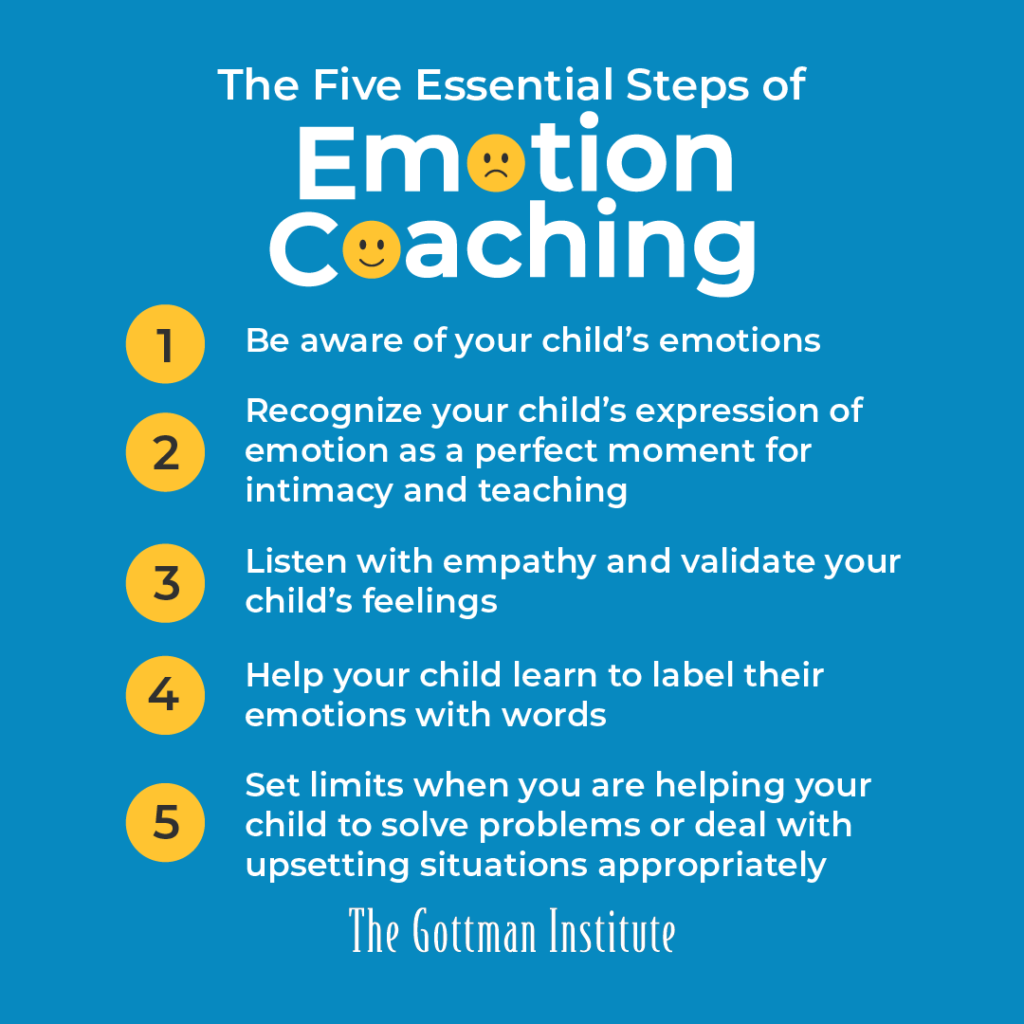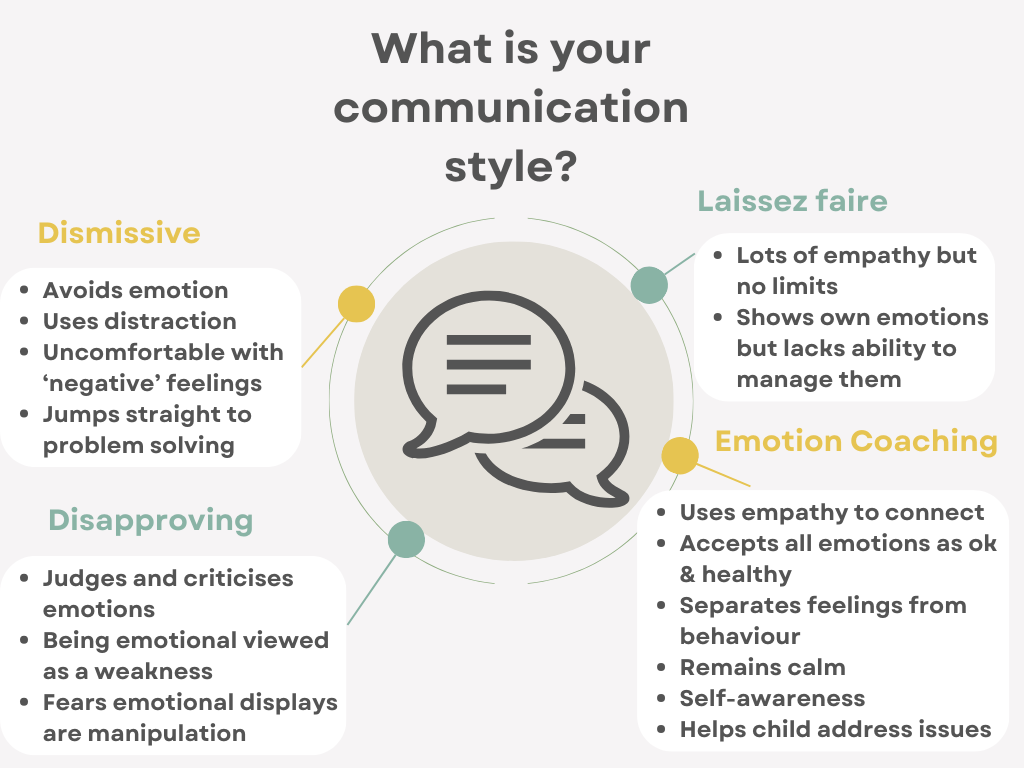Introduce
Emotion Coaching is a communication tool that uses moments of emotion to guide and teach children about more effective responses. Emotion Coaching was developed using psychologist John Gottman’s research on emotional intelligence to create positive, long lasting effects for children.
Using this approach accepts all feelings as normal and healthy (but not all behaviours) and considers what the feelings, needs and emotions are behind the behaviour. This helps children to have an experience of co-regulation and to calm down, physiologically and psychologically. Adults will often rely on external regulation when managing challenging behaviour, in the form of sanctions and rewards. Emotion Coaching provides a relational rather than behavioural strategy for supporting children’s behaviour.
The Five Essential Steps are outlined below:

Image source: The Gottman Institute
“Much of today’s popular advice ignores the world of emotions. Instead, it relies on child rearing theories that address the children’s behaviour, but reject the feelings that underlie that behaviour.”
Gottman, 1997
Develop
Emotion coaching involves:
- Showing children respect and understanding when they feel frustrated, misunderstood or upset
- Talking through feelings and trying to understand where they come from
- Showing empathy in difficult interactions by patiently validating feelings
- Respecting children’s attempts to solve problems
- Working through difficult emotions and experiences alongside the child
Emotion coaching is a style of communication. Most people find they can respond in a mixture of styles but one is usually more dominant than the others. Which communication style do you most identify with from the image below?

Image source: Lorna Colter
The difference between a dismissive approach and emotion coaching is demonstrated in this clip from the film ‘Inside Out’. See if you can identify the steps of Emotion Coaching in the way Sadness responds.
Reflect
Stop and Reflect: Has Emotion Coaching taught you something new about how you communicate? Reflect on the following questions?
– Do you remember how adults responded to your emotions as a child?
– How do you find yourself responding to children when they express big feelings?
– What might you change about your response when you are next supporting a child with their feelings & behaviour? See if you notice a difference in how the interaction plays out.






